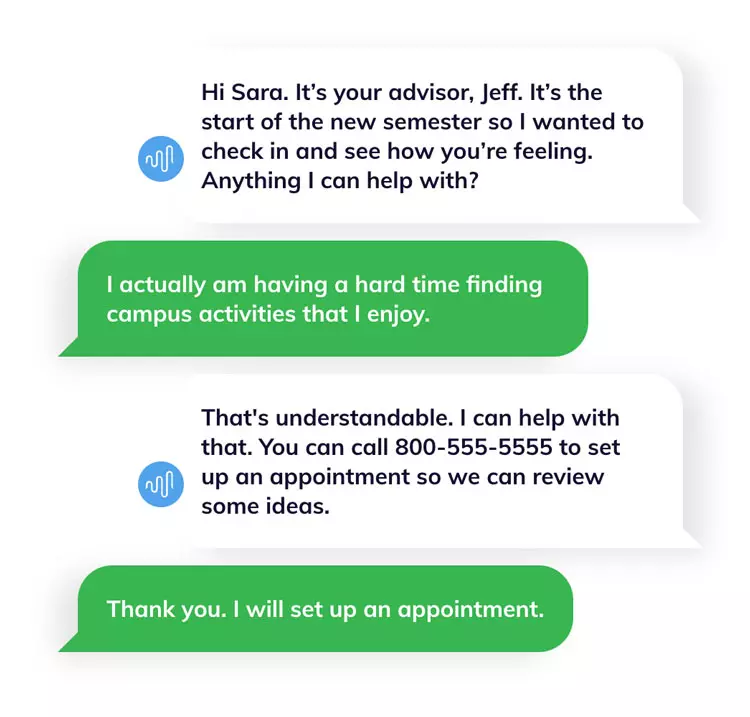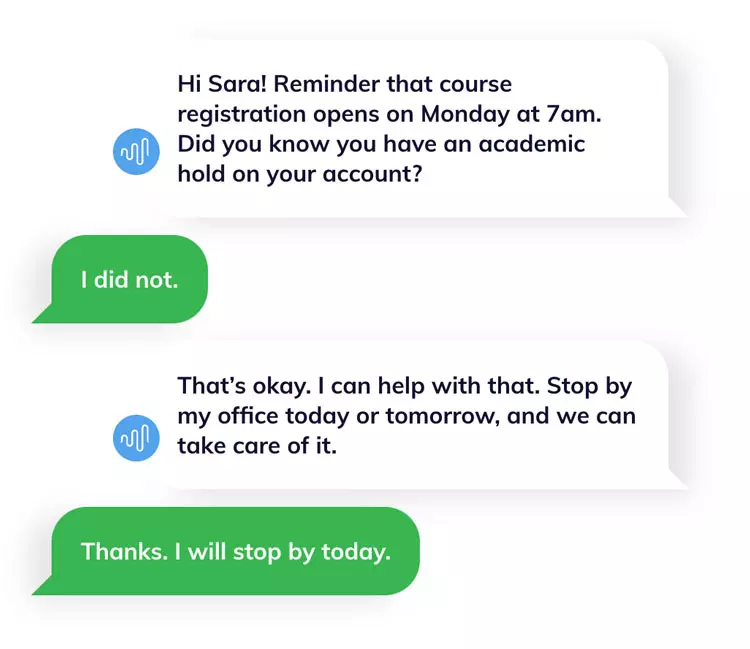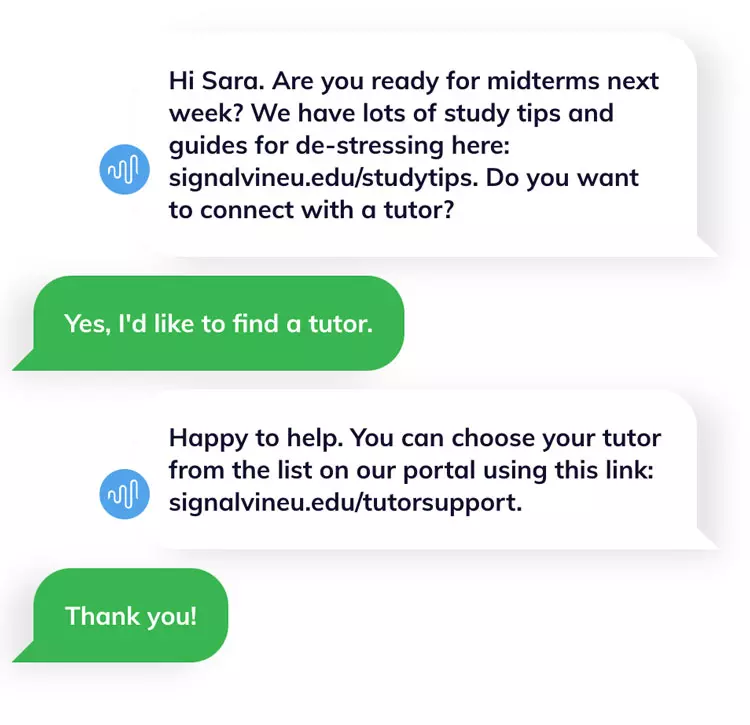Improve retention by nudging students in the right direction
Engage 1:1 with students
A personal check-in text message to see how a student is faring emotionally, academically, and financially on campus could mean the difference between the student graduating or not graduating. Building relationships with students through 1:1 follow-ups is a great way to put them on the path toward success.
Identify students who need additional help
Quickly identify which students need additional assistance with flagged replies in the platform. Send personalized messages and encouragement to each student who submits a flagged response, ensuring that students feel supported when they need it the most.
Connect with students in a scalable way
Creating timely, personalized messages in a scalable way is a key component of successful student retention strategies. Using information from any system, you can distribute personalized text messages to large groups of students that are immediately relevant.
Student Success & Retention
Texting Examples

Checking in throughout the semester is an excellent way to keep a pulse on your student body, strengthen your relationships with students, and build up their confidence. It also provides a great opportunity for students to surface any concerns they may have about classes, money, or campus life in general.

Registering for classes is always a process, but first-year and high-risk students may need more guidance. Use Modern Campus Message to reach out to students who have academic holds on their accounts or have asked for additional resources around course registration. At each step of the registration process, you’ll be able to distribute helpful instructions to select groups at scale.

Student success is important because it directly impacts retention rate. If it takes a village to raise a child, it takes an equally supportive community to nurture a successful student.
Engage with your students and encourage them to participate in campus programs, both virtual and in-person. Sending reminders about advising appointments and mental health resources are excellent ways to point students to additional help if needed.